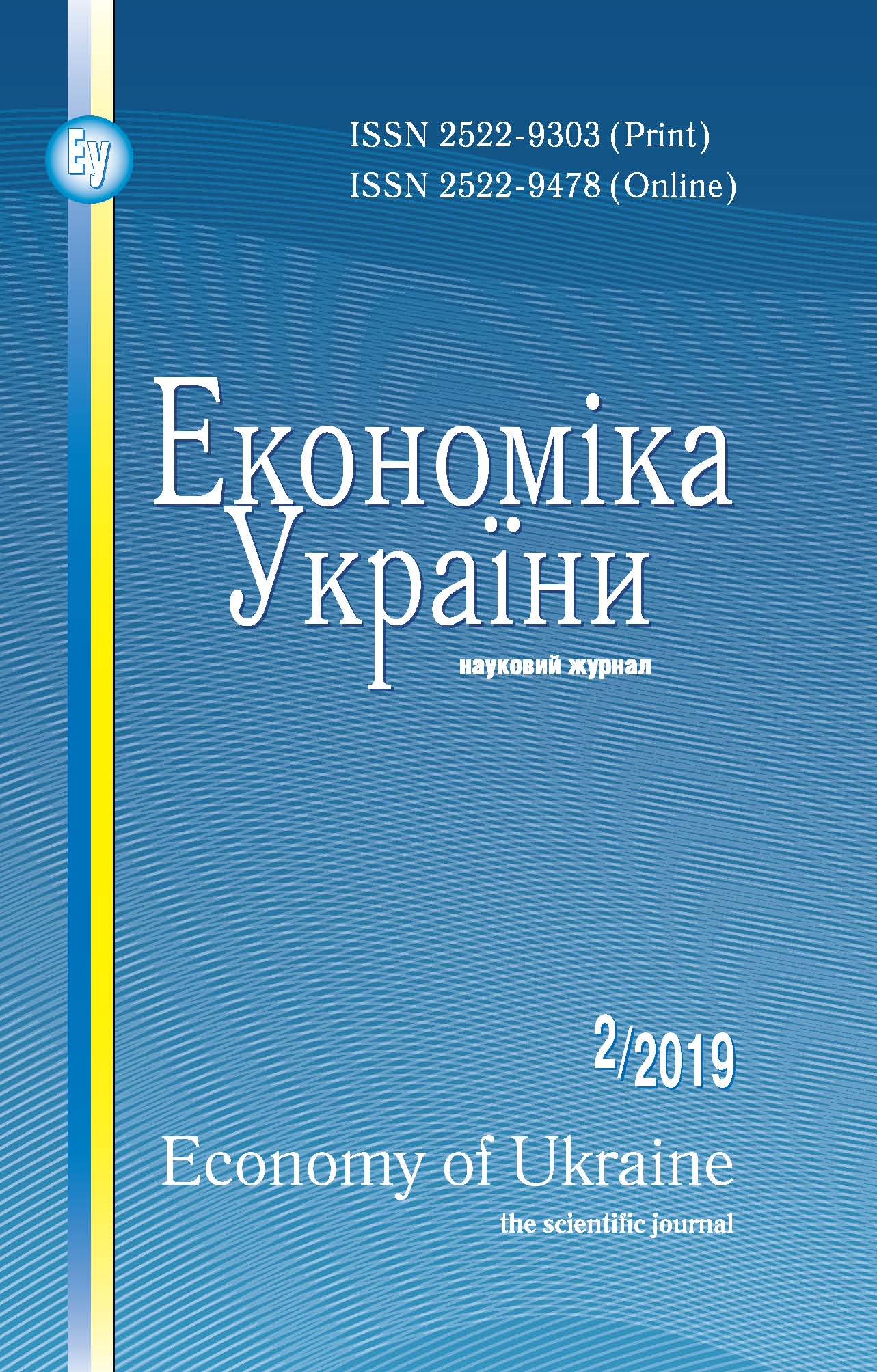INFORMATION ECONOMY: A CHANCE TO BUILD A NEW MODEL OF SOCIAL DEVELOPMENT OR AN ILLUSION OF A CHANCE?
Keywords:
information economy; innovation activity; information and digital technologies; technological revolution; network communities; financing of innovation activity; socio-economic system; development strategy; new model of socio-economic developmentAbstract
The article is devoted to the research of the informational model of development, which arose at the turn of the XX and XXI centuries as a result of the information and technological revolution (ITR). The information economy, its features, ways of formation and contradictions are characterized. On the basis of statistical data, it is shown how the information economy affects the socio-economic situation of various segments of the population in developed and developing countries, particularly in Ukraine. It is proved that ITR, computerization and digitalization of all spheres of public life ultimately leads to the collapse of an existing mature socio-economic system. After all, according to the laws of dialectics, it has become internally contradictory, but at the same time it is a developed element of the next socio-economic system.
It is substantiated that Ukraine will not be able to switch to the information economy and form a new model of development unless the real causes of the failure of reforms in the country are resolved. Their consequences are: stagnation, structural deformations, deindustrialization, the outflow of highly qualified personnel abroad, dependence on advanced technologies and external sources of financing, almost total poverty and excessive income differentiation, which reproduces continuous social contradictions.
In the author’s opinion, to ensure Ukraine’s transition to the information economy it is necessary to develop a program of strategic development of the country. Such a program should be formed on the basis of integrated social science and technological justification, which will contribute to the renewal of production, bring it closer to the world standards and ensure the socio-economic needs of the Ukrainian people in accordance with adequate modern international standards.
References
Kastells M. Informatsionnaya Epokha: Ekonomika, Obshchestvo i Kul'tura [The Information Age: Economy, Society and Culture]. Moscow, SU HSE, 2000 [in Russian].
Artomova T.I., Gritsenko A.A., Krichevskaya T.A., et al. Ierarkhiya i Seti v Institutsional'noi Arkhitektonike Ekonomicheskikh Sistem [Hierarchy and Networks in the Institutional Architectonics of Economic Systems]. A.A. Gritsenko (Ed.). Kyiv, Institute for Economics and Forecasting of the NAS of Ukraine, 2013 [in Russian].
Mason P. Postkapitalizm. Putevoditel' po Nashemu Budushchemu [PostCapitalism: A Guide to our Future]. Moscow, Ad Marginem Press, 2016 [in Russian].
Rifkin J. Tret'ya Promyshlennaya Revolyutsiya. Kak Gorizontal'nye Vzaimodeistviya Menyayut Energetiku, Ekonomiku i Mir v Tselom [The Third Industrial Revolution. How Lateral Power Is Transforming Energy, the Economy and the World]. Moscow, Alpina non-fiction, 2014 [in Russian].
Grytsenko A.A. Arkhitektonika Ekonomichnoi Bezpeky [Architectonics of Economic Security]. Kyiv, NAS of Ukraine, Institute for Economics and Forecasting of the NAS of Ukraine, 2017 [in Ukrainian].
Butkalyuk V.A. Sotsiologicheskoe izmerenie sovremennoi sotsial'no-ekonomicheskoi sistemy [Sociological measurement of the modern social and economic system]. Ekonomika: teoriya ta praktyka - Economics: theory and practice, 2017, No. 2, pp. 13-17 [in Russian].
Chandrasekhar C.P., Ghosh J. Naskol'ko neravny mirovye dokhody? [How unequal are world incomes?], available at: www.warandpeace.ru/ru/analysis/view/129983/ [in Russian].
Gorz A. Nematerial'noe. Znanie, Stoimost' i Kapital [L'Immateriel. Connaissance, Valeur et Capital]. Moscow, SU HSE, 2010 [in Russian].
Basu K. Po tu Storonu Nevidimoi Ruki: Osnovaniya Novoi Ekonomicheskoi Nauki [Beyond the Invisible Hand: Groundwork for a New Economics]. I. Scubarov (Ed.). Moscow, Gaidar Institute, 2014 [in Russian].
Marx K., Engels F. Tvory. T. 1 [Works. Vol. 1] [in Ukrainian].
Hegel G.W.F. Sochineniya. T. IX [Works. Vol. IX ] [in Russian].
Kushch A. Boi s ten'yu. Pochemu tenevaya ekonomika pozvolit ukraintsam zhit', kak polyakam [A fight with a shadow. Why the shadow economy will allow Ukrainians to live like the Poles]. Delovaya stolitsa - DsNews, November 6, 2017, available at: www.dsnews.ua/economics/boy-s-tenyu-pochemu-tenevaya-ekonomika-pozvolit-ukraintsam-03112017220000 [in Russian].
Bogdan T. Vneshnyaya finansovaya uyazvimost' kak predvestnik budushchikh krizisov [External financial vulnerability as a harbinger of the future crises]. Zerkalo nedeli - Mirror Weekly, July 13, 2018, available at: zn.ua/macrolevel/vneshnyaya-finansovaya-uyazvimost-kak-predvestnik-buduschih-krizisov-289055_.html [in Russian].
Malitskii B., Popovich A. Ukrainskaya nauka: kuda vedet politika "urezaniya" [Ukrainian science: where the "cuts" policy leads to]. Zerkalo nedeli - Mirror Weekly, October 8, 2016, available at: gazeta.zn.ua/science/ukrainskaya-nauka-kuda-vedet-politika-urezaniya-_.html [in Russian].
Innovatsiina Ukraina 2020: Natsional'na Dopovid' [Innovative Ukraine 2020: National Report]. V.M. Heyets et al. (Eds.). Kyiv, NAS of Ukraine, 2015 [in Ukrainian].
Bogdan T. Razrushenie ukrainskoi nauki kak sledstvie klanovo-oligarkhicheskogo stroya [Destruction of Ukrainian science as a consequence of the clan-oligarchic system]. Zerkalo nedeli - Mirror Weekly, April 7, 2018, available at: zn.ua/SCIENCE/razrushenie-ukrainskoy-nauki-kak-sledstvie-klanovo-oligarhicheskogo-stroya-280531_.html [in Russian].
Parkinson S.N. Zakon Parkinsona i Drugie Pamflety [Parkinson's Law, and Other Studies in Administration]. Moscow, Progress, 1976 [in Russian].
Downloads
Published
How to Cite
Issue
Section
License
Copyright (c) 2019 Institute for Economics and Forecasting of the NAS of Ukraine

This work is licensed under a Creative Commons Attribution-NonCommercial-NoDerivatives 4.0 International License.



